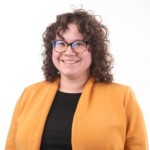Interviewer: Yukta Narayan
Interview Date: February 9, 2023
Location: Interview conducted over Zoom
Duration: 1:23:51
In this interview, Dr. Kali Furman starts off by talking about her name, explaining that her first name was found in a book, she has no middle name, and she kept her maiden name even when married. From there, she describes her childhood in St. Maries, Idaho, noting its isolation as she lived on a mountain thirty minutes away from town in a trailer in the woods. She adds that she lived with her mother, father, and sister with no other extended family close by. Furman then reflects on her high school experience and what she chose to do during that time, preparing herself to leave her small town. Throughout the interview, Furman talks about how culture and technology have changed over her lifetime. When discussing impactful events, she discusses living through 9/11 and how it has gravely impacted society as a whole as well as a number of individuals. Diving deeper into her field of study, Furman touches on important social issues and suggests solutions.
Furman goes on to talk about how she began to pursue Women, Gender, and Sexuality Studies. She first studied at Boise State University where she began as a History, Social Studies, and Secondary Education Major, before switching to Women’s Studies. During the time between her undergraduate and graduate degrees, Furman worked at the Gender and Equity Center. Because of her experiences at that job, she realized that she had a love for working and furthered her interest in feminism. After that, she knew she wanted to pursue graduate school in Women, Gender, and Sexuality Studies. This led to the start of her career at Oregon State University. Furman explains that, while at OSU, she has been a student, graduate assistant, and eventually full-time instructor. Altogether, she has spent almost a decade at OSU where she has completed her master’s degree, worked in Student Affairs, completed her PhD and post-doctoral work, and been hired as an assistant professor.
Furman then discusses other jobs she has had throughout her life, emphasizing that most of them had to do with her academic studies. She also talks about her publications and the research that she conducted to earn her PhD. In reflecting on her achievements, she is quick to acknowledge people who have played important roles in her life and that have helped her get where she is today. Furman also touches on the importance of the COVID-19 pandemic and how it has affected not only her personally but also society as a whole. When speaking about the pandemic, she also acknowledges how it has changed society and brought attention to important pieces of history and sociology. As the interview concludes, Furman talks about travel and other aspects of her life that she enjoys and feels have contributed to her academic journey. Furman’s final comment is that change starts with individuals.
Dublin Core
Title
Description
Furman goes on to talk about how she began to pursue Women, Gender, and Sexuality Studies. She first studied at Boise State University where she began as a History, Social Studies, and Secondary Education Major, before switching to Women’s Studies. During the time between her undergraduate and graduate degrees, Furman worked at the Gender and Equity Center. Because of her experiences at that job, she realized that she had a love for working and furthered her interest in feminism. After that, she knew she wanted to pursue graduate school in Women, Gender, and Sexuality Studies. This led to the start of her career at Oregon State University. Furman explains that, while at OSU, she has been a student, graduate assistant, and eventually full-time instructor. Altogether, she has spent almost a decade at OSU where she has completed her master’s degree, worked in Student Affairs, completed her PhD and post-doctoral work, and been hired as an assistant professor.
Furman then discusses other jobs she has had throughout her life, emphasizing that most of them had to do with her academic studies. She also talks about her publications and the research that she conducted to earn her PhD. In reflecting on her achievements, she is quick to acknowledge people who have played important roles in her life and that have helped her get where she is today. Furman also touches on the importance of the COVID-19 pandemic and how it has affected not only her personally but also society as a whole. When speaking about the pandemic, she also acknowledges how it has changed society and brought attention to important pieces of history and sociology. As the interview concludes, Furman talks about travel and other aspects of her life that she enjoys and feels have contributed to her academic journey. Furman’s final comment is that change starts with individuals.

